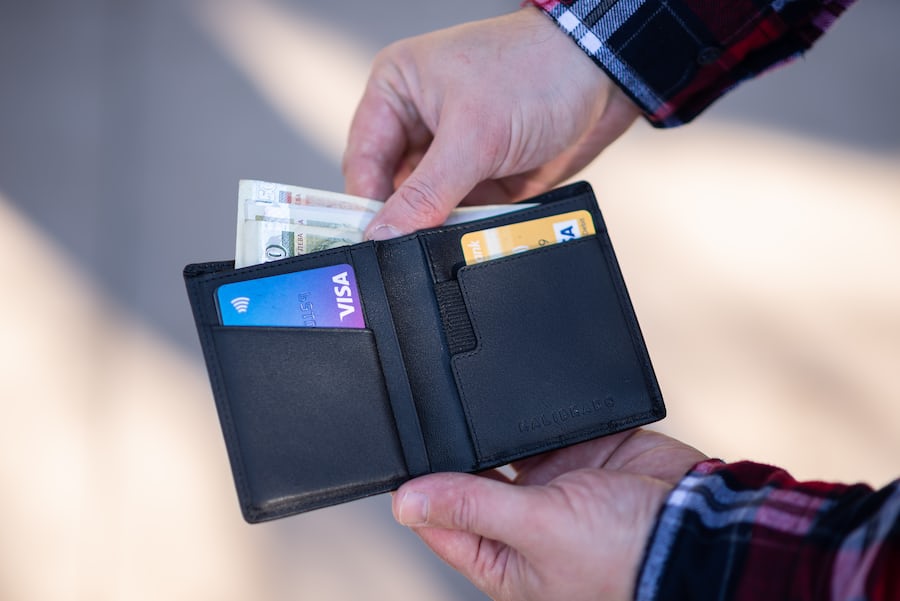With only 10% of the nation feeling positive about the economy and consumer sentiment at a record low, although there’s always something to complain about, as savvy investors, we cannot let loss aversion get the best of us! Training ourselves to weigh our wins more than our losses will serve us far better in the long run.
What drives anxiousness and uncertainty in anything is procrastination and a lack of planning. The number one stressor in Americans’ lives are their finances for this reason. Due to a lack of financial literacy adoption in classrooms and awareness around the importance of it from an early age, Americans not only become more overwhelmed by tackling their finances once they are adults but are also unable to navigate the present to move forward. Currently, Americans are more anxious than they were in 2008 despite being wealthier on average with fewer recorded bankruptcies, defaults, and foreclosures.
Since late 2021, inflation has been and will be the top concern for Americans for a while now, and just as it takes time to smoothly land a plane, engineering a soft landing after sleeping behind the cockpit these past two years, it will take time for the Fed to cool down inflation and get it back to its target rate of 2% without plunging the economy into a recession. Luckily, we’ve never witnessed 41-year high inflation with a resilient labor market so the fears may be overblown but it’s always prudent to stay optimistically cautious.
Although wages are rising and those who followed suit in the Great Resignation on average saw their salary rise by a record 6%, it’s going to become increasingly more difficult in the coming months to ask for more as companies must raise their own prices in order to keep up with rising manufacturing and production costs, not to mention boost employee pay at fair market value to stay competitive and come out stronger on the other side.
There’s no quick fix for hedging your lifestyle against inflation yet it’s much easier for those with more discretionary and disposable income who earn a higher income and are not hit by a regressive tax which eats into necessities.
However, if you own the majority (80%+) of equity in your home, you are already in the right direction given real estate is one of the most defensible and inflationary-proof investments out there. In fact, your stake takes advantage of this systematic risk by rising rents and capital appreciation, the two drivers of returns in real estate.
While with your cash flow, inflation naturally erodes debt away so rushing to pay off your mortgage may not be a necessary move yet. Although it feels incredible to be out of debt and not beholden to a lender, this is another way to let inflation work for you without rushing to pay it off, helping you build financial freedom in an easier way.
In order to be a savvy investor and truly wealthy not just rich, you must think outside of the box and see how you can turn a negative into a positive. By being agile, adaptive, and having an abundance mindset, no matter if there’s hyperinflation or an incoming recession, there are always ways to take advantage of the uncertainty and not let it squeeze the budget.
Given war is still raging in Ukraine and supply chains are still shaky and not fully recovered yet, it’s normal to feel what you are feeling however what’s most important is to know what’s in your control.

Control the Controllables
With a 13% rise in credit card balances yoy in Q2, this is the largest increase in over 20 years according to the Fed’s most recent Household Debt and Credit Report. Clearly buying what you need, not what you want doesn’t stick with most Americans so following a 50/30/20 budget and saving at least 20% of one’s income may be the solution. Understanding how debt can really impair one’s mental and physical health is important to realize here.
Having to tackle on credit card debt to cover expenses cannot be a decision made on the fly given there are many other factors to consider that you have control over first.
For the most part, wages are still keeping up with inflation and if not, tapping into non-correlated asset classes such as farmland, infrastructure, artwork, real estate crowdfunding and physical tangible real estate are most advantageous. Given APR rates are jumping on unpaid credit card balances, more households are struggling so now is the a perfect time to do a financial health check to better assess what toxic debt (credit card) vs better debt (student loans, mortgages) are worth waiting for versus paying off immediately.
Rushing any decision doesn’t serve anyone, especially yourself. If you ever feel pressurized to make a financial choice, it probably isn’t the right move. Sure, time is of the essence however confirming what debt is most prudent to tackle first and how inflation can work for you not against you can help you become debt free faster and buy more assets down the road to not feel the pinch of higher prices!

